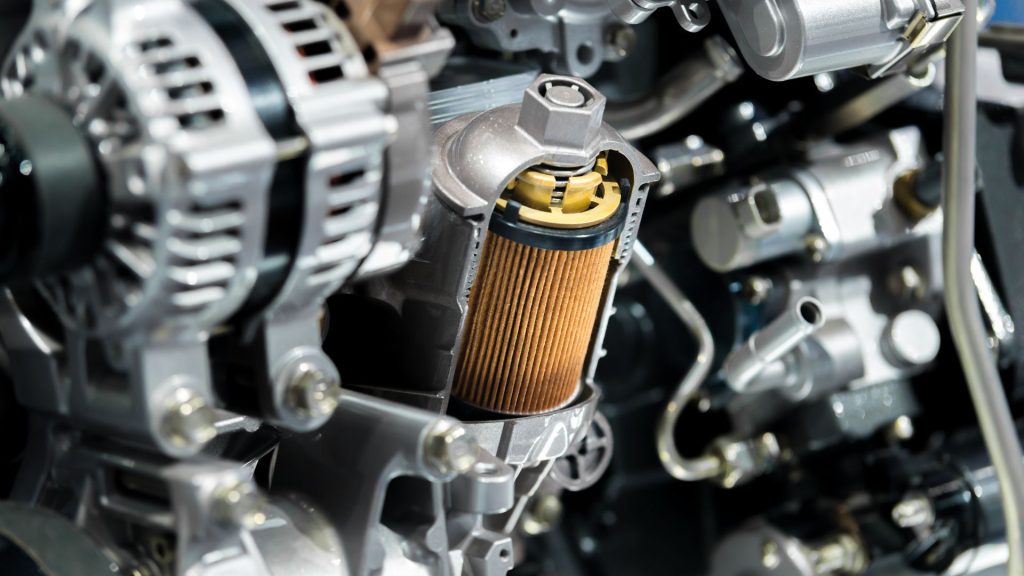Picture this: you’re on a busy highway, trying to merge into traffic. You gently press the gas pedal, expecting a smooth acceleration, but… nothing. Your car barely budges. Panic sets in as you realize the only way to gain speed is by flooring the gas pedal, sending the car lurching forward. This frustrating experience, where your car only accelerates when you push the pedal to its limit, can be both confusing and worrying.

Image: rerev.com
This article will delve into the world of sluggish acceleration, exploring the common culprits behind this problem and providing you with practical troubleshooting steps. We’ll break down the technical jargon and address the crucial question: What’s happening under your car’s hood? Whether you’re a seasoned driver or a curious beginner, knowing the reasons your car might be hesitant to accelerate will empower you to understand your vehicle better and anticipate potential issues. Let’s dive in!
Uncovering the Mystery of Sluggish Acceleration
The feeling of your car dragging its feet when you press the gas pedal can be the result of various factors. From minor issues like a clogged air filter to more serious problems like a faulty fuel pump, it’s important to pinpoint the root cause to effectively resolve the issue.
Common Culprits for Sluggish Acceleration:
-
Fuel Delivery System: Your car’s engine relies on a smooth flow of fuel to ignite and generate power. Any hindrance in this system can manifest as sluggish acceleration.
-
Clogged Fuel Filter: Imagine a tiny straw attempting to suck up a thick milkshake. It struggles to draw the liquid, right? A clogged fuel filter restricts fuel flow, creating the same struggle for your engine.
-
Faulty Fuel Pump: This vital component pushes fuel from your gas tank to the engine, acting like your car’s heart. If the fuel pump is malfunctioning, it can supply insufficient fuel, resulting in a lack of power.
-
Dirty Fuel Injectors: These tiny nozzles precisely deliver fuel into the cylinders. Over time, deposits can build up, hindering fuel delivery and causing a reduction in power.
-
-
Air Intake System: The air intake system manages the flow of air into your engine, and any obstruction in this process can affect performance.
-
Clogged Air Filter: Just like a clogged fuel filter, a dirty air filter restricts airflow, leading to reduced engine power.
-
Air Leak: Cracked hoses or loose components in your air intake system can allow unfiltered air into the engine, causing a decrease in fuel efficiency and sluggish acceleration.
-
-
Engine Components:
-
Spark Plugs: Think of spark plugs as the igniters of your engine. If worn out or fouled with debris, they can compromise the ignition process, resulting in misfires and poor acceleration.
-
Worn Engine Components: Just like any machine, engine parts wear down over time. This wear can weaken the engine’s ability to generate power, resulting in sluggish acceleration.
-
-
Transmission System:
-
Faulty Transmission Fluid: The transmission fluid ensures smooth gear changes and power transfer. If the fluid is contaminated or low, it can lead to slipping or delayed acceleration.
-
Worn Transmission Components: Just as with engine components, transmission parts can wear out, resulting in slippage or rough shifting, which can affect acceleration.
-
Beyond the Basics: Deeper Diagnosis
While a compromised fuel delivery system or a clogged air filter are common suspects, there are more complex scenarios that can lead to your car only accelerating when you floor it. We’ll explore these factors below.
-
Electronic Throttle Control (ETC) Issues: For modern vehicles equipped with ETC, issues in the system can cause the throttle to respond erratically or not respond at all, leading to sluggish acceleration. This usually involves a faulty sensor or a malfunctioning throttle position sensor.
-
Computer Malfunction: Your car’s engine control unit (ECU) manages various engine functions, including fuel delivery, spark timing, and air intake. If the ECU malfunctions, it can alter these settings, leading to poor performance.
-
Fuel Gauge Problem: While this may seem unrelated, an inaccurate fuel gauge can be a symptom of a larger issue. If the gauge constantly reads low, even when the tank is full, it could indicate a problem with the fuel sender unit, which may also affect fuel delivery.

Image: wheelsadviser.com
Signs Your Car Needs Professional Attention
Here’s a quick checklist of symptoms that should prompt you to visit a qualified mechanic:
-
Check Engine Light On: This light illuminates when the ECU detects an issue with the engine performance or emissions system. Don’t ignore it!
-
Unusual Engine Noises: Loud clanging, rattling, or screeching sounds coming from the engine compartment can signal a serious problem.
-
Burning Smell: If you notice a strong burning smell coming from your car, especially when accelerating, it may indicate a faulty fuel pump or a leaking hose.
-
Sudden Loss of Power: A sudden drop in acceleration, even when the gas pedal is pressed, can represent a severe issue and should be addressed immediately.
Actionable Tips for Better Acceleration
While it’s crucial to seek professional help for complex issues, here are a few things you can do to potentially improve acceleration:
-
Regular Maintenance: Schedule routine oil changes, check your air filter, and replace spark plugs as recommended by your car’s manufacturer.
-
Fuel Additive: Occasional use of a fuel system cleaner can help remove deposits from your fuel injectors and improve fuel delivery.
-
Check Transmission Fluid: Ensure your transmission fluid is at the correct level and clean.
-
Driving Habits: Avoid rapid acceleration and braking; these habits put extra stress on your engine and can shorten its lifespan.
Car Won’T Accelerate Unless I Floor It
A Final Word: Driving with Confidence
This journey into the world of sluggish acceleration has equipped you with valuable knowledge to understand and address potential issues in your car. Remember, regular maintenance and proactive monitoring of your car’s performance are key to preventing problems before they escalate. If you are unsure about any aspects of your car’s performance, never hesitate to consult a professional mechanic. Driving with confidence and knowing the underlying mechanics of your car will enhance your driving experience and keep you safe on the road.





